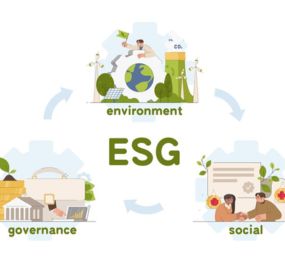African companies are increasingly recognizing the importance of environmental, social, and governance (ESG) factors in their operations. Effective ESG reporting is crucial for enhancing sustainability, attracting investors, and contributing to a greener future. Here are some best practices for African companies to consider when developing their ESG reports:
1. Adopt a Framework: Choose a recognized ESG reporting framework like the Global Reporting Initiative (GRI), Sustainability Accounting Standards Board (SASB), or Task Force on Climate-related Financial Disclosures (TCFD). 1 These frameworks provide structured guidelines for disclosing material ESG information.
2. Materiality Assessment: Identify the ESG issues most relevant to your business and stakeholders. This will help you focus your reporting efforts on the most significant aspects of your sustainability performance.
3. Data Collection and Verification: Gather accurate and reliable data to support your ESG claims. Consider using third-party verification to enhance credibility.
4. Transparency and Disclosure: Be transparent in your reporting, disclosing both positive and negative impacts. Avoid greenwashing and ensure that your report is clear, concise, and accessible to a wide audience.
5. Stakeholder Engagement: Involve stakeholders, including employees, customers, suppliers, and communities, in the ESG reporting process. Seek their feedback and consider their perspectives when disclosing information.
6. Alignment with Local Regulations: Comply with relevant local regulations and standards related to ESG reporting. This may include laws on environmental protection, labor rights, and corporate governance.
7. Integration with Business Strategy: Ensure that your ESG reporting is aligned with your overall business strategy. This demonstrates that sustainability is a core value for your company.
8. Continuous Improvement: ESG reporting should be an ongoing process. Set clear targets, track progress, and use reporting as a tool for identifying areas for improvement.
9. Consider the African Context: Tailor your ESG reporting to the specific challenges and opportunities facing African businesses. Highlight the unique contributions your company is making to sustainable development in the region.
10. Seek External Validation: Consider having your ESG report reviewed by an independent third party to enhance credibility and ensure compliance with reporting standards.
By following these best practices, African companies can strengthen their ESG performance, build trust with stakeholders, and position themselves as leaders in sustainable business.
To register or learn more about the Forum please check here: https://www.leadventgrp.com/events/esg-and-climate-africa-summit/details
For more information and group participation, contact us: [email protected]
















